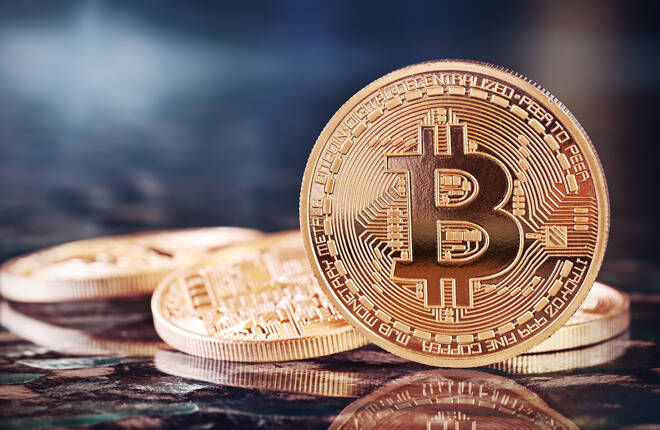Advertisement
Advertisement
El Salvador Asked to Get out of Bitcoin (BTC) by the IMF
By:
A 30% slide in Bitcoin (BTC) since becoming legal tender raises more concerns for the IMF as it considers El Salvador's $1.3bn loan request.
There’s been plenty of negative crypto chatter from regulators in recent months. Late last year, the Bank of England stepped into the spotlight, warning of the risks that cryptos pose to financial stability. The central bank also called for a global crypto regulatory framework.
Since then, regulators from around the world have hit the news, with activity spiking at the turn of the year.
The crypto market has had to absorb a number of market shocks, including a proposed ban of cryptos and crypto mining in Russia.
Financial Stability and Interconnectedness
Late last year, the Bank of England’s Financial Stability Report included a section dedicated to crypto assets. This was significant because the other major report headings included COVID and the Economy, Bank Resilience, and Mortgage Measures. Cryptos inclusion as one of 4 main headings reflected the Bank’s concerns over the crypto market. While noting that crypto assets posed limited risk to UK financial stability, the Bank commented on risks to financial stability if the market continues to grow at a rapid pace and as it becomes interconnected with the wider financial market.
Earlier this year, the International Monetary Fund echoed the BoE’s concerns in an IMF blog. In the blog, the IMF talked of a growing interconnectedness between virtual assets and the financial markets and equity markets in particular. The interconnectedness between cryptos and equity markets allows market shocks, which can destabilize financial markets.
Since the IMF blog, movements across the U.S equity markets and the crypto market have justified the IMF’s concerns.
El Salvador, Bitcoin, and the IMF
In recent weeks, there has also been plenty of news on El Salvador and cryptos. Last September, El Salvador reportedly became the first country to make Bitcoin (BTC) legal tender.
At the turn of the year, news hit the wires of El Salvador planning to issue Bitcoin Bonds to support the construction of Bitcoin City. El Salvador’s president, Nayib Bukele is a strong advocate of Bitcoin. He is among a number who have predicted Bitcoin at $100,000.
Since becoming legal tender on 7th September, Bitcoin has tumbled 30% to Tuesday’s close. The country’s interconnectedness with Bitcoin should be far more alarming than that of Bitcoin and the U.S equity markets.
It comes as little surprise, therefore, that the IMF has raised concerns and called for El Salvador to remove Bitcoin as legal tender. Within the IMF press release, the IMF warned of large risks associated with “the use of Bitcoin on financial stability, financial integrity, and consumer protection, as well as fiscal contingent liabilities”. With inflation now a major concern across the globe, the 30% fall in Bitcoin’s value justifies the IMF’s concerns. While El Salvador is unlikely to be using Bitcoin in trade, consumers could feel the pinch. The 30% tumble is likely to impact purchasing power for those who adopted Bitcoin.
The IMF Executive Board carried out the El Salvador review following a request from the El Salvador government for a $1.3bn loan last year.
Bitcoin Price Action
At the time of writing, Bitcoin was down by 0.11% to $36,935. A move back through to $40,000 and last week’s high $43,513 would bring $45,000 levels into play. While regulatory action continues to influence, however, today’s FOMC monetary policy decision, rate statement, press conference will be key.
About the Author
Bob Masonauthor
With over 28 years of experience in the financial industry, Bob has worked with various global rating agencies and multinational banks. Currently he is covering currencies, commodities, alternative asset classes and global equities, focusing mostly on European and Asian markets.
Advertisement
